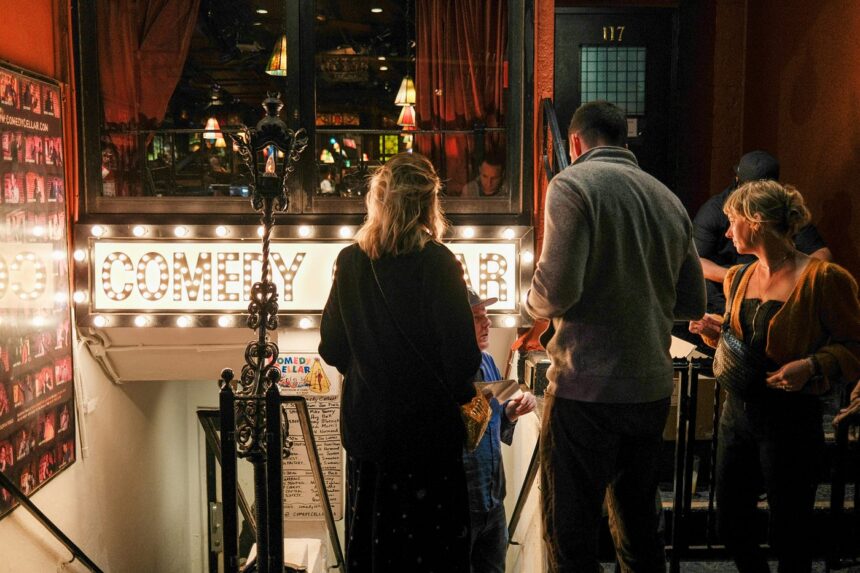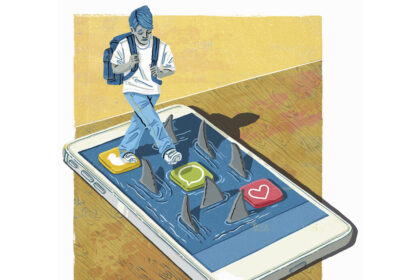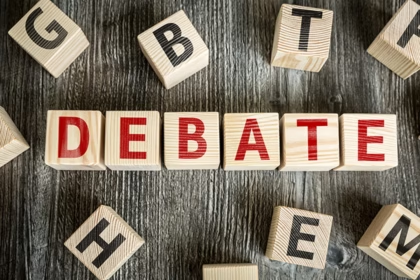Humor Across the Divide: Laughter, often described as a universal language, is a bond that ties us together in the odd spectacle of being human. It pops up uninvited at weddings, funerals, and bus stops. But in our current deeply polarised climate, laughter is more of a dividing line than a bridge. What used to draw us into the same orbit now at times hurts or pushes us away.
Take the meme, for instance
The whole thing started as a light-hearted piece of digital folklore, the subject of jokey clickbait tales. Today, however, memes have become ubiquitous in the political landscape. It’s rare to find a political or climate change story that merely elicits laughter. It denotes belonging, identifies oneself with the followers, and defines group frontiers. Two people can see the same picture, and one laughs while the other gets mad. At times, they both laugh, but for wildly divergent reasons.
A telling example of this disconnected laughter took place when comedian Ricky Gervais hosted the Golden Globes. His cracks about Hollywood’s hypocrisy had some in the audience guffawing and others crossing their arms in disquiet. What one group heard as bracing truth-telling, the other interpreted as gratuitous cruelty. The punchlines were the same, but two entirely different experiences were refracted through ideology and expectation.
This incident raises the question
Are we still willing to laugh together? Where humour used to be a release, now it’s a litmus test. A laugh in the wrong place is a way to flag yourself as innocent, or clueless, or something even worse, which can be a turncoat against your own cause. Many opt for silence, afraid of giving away where they stand. Laughter, a former act of spontaneity, reads now as a loyalty oath.
What if laughter is, rather than something that sews us up, an agent of filtration? Instead of uniting us in civic society, it divides us into camps, policing who’s in and who’s out. A punchline that once caused a town to lose its composure now causes half of the front row to cross their arms, uncertain of the implied meaning.
Of course, humour has been sharp since the beginning. From Aristophanes in ancient Athens to Jonathan Swift’s sly suggestions, satire has served as a device to prick pomposity and high-mindedness. Chaplin’s lambasting of dictators prompted guffaws all over the world.
But here is the difference
The targets then were more distinct, often shared. Now the terrain has fragmented. Every joke carries the risk of crossing a boundary for some, exploring it with the complete confidence that it will divide us all into even more minor factions.
There are times, of course, when political comedy rose above partisanship rather than fuelling it. Ronald Reagan, for instance, was adept at delivering a subtle jab. In a 1984 presidential debate, when asked about concerns over his age, he grinned and said he wouldn’t take advantage of his opponent’s “youth and inexperience”. It stirred laughter from both sides of the aisle, including the opponent he was jabbing this at, and served as a reminder that humour can disarm rather than hurt when it is wielded with generosity.
Maybe what we are losing is humour’s liberating spirit. At one time, it rattled cages and gave human beings the right to question authority. Now it sounds tame, seeming to have predictable grooves. We know which comedians we like, which sketches we consider funny, and which jokes offend them before we watch. We actually laugh less, as laughter is becoming more of a duty than a spontaneous act. It’s closer to dancing, less comedy.
Could a hint of humour serve as a means of escape? What if it taught us that to be laughed at, especially by ourselves, is not humiliation but release? Self-deprecation, after all, can be a source of wisdom. But that laughter is hard to come by these days, because it requires humility, and humility is not an online contender. The algorithm loves outrage, not the gentle art of admitting one’s own absurdity.
Yet humour has a wilfully unstoppable force. It sneaks in uninvited. Look at children creating random games or commuters exchanging a sheepish grin after hearing the far too familiar delayed train announcement. Even in a society rent by ideological schisms, spontaneous laughter erupts at football matches, wedding feasts, and religious festivals. These situations serve as a reminder that, despite your tough exterior, you remain vulnerable to amusement.
So what is to be done? The challenge is not to eliminate the discomfort caused by humour, but to broaden its impact. We need comedy that bothers everybody to the same degree and makes us all uncomfortable. The laughter primarily targets our own flaws rather than those of others. This kind of humour puts arrogance on both sides, not just the other.
Admittedly, such laughter is not easy. To laugh across the gap is in danger of being misunderstood, even condemned. But perhaps that’s precisely its value. If polarisation feeds on laughter as a weapon, maybe reconciliation needs laughter as a leveller. Not surrender to the enemy but to that sweet acknowledgement that none of us are above being mocked. That recognition is profoundly democratic.
Consider: If all political tribes disappeared tomorrow, would our jokes still be funny? Would those punchlines still connect if they were not aimed at ideological targets? Or would we find that politics has colonised our sense of humour, and now we can find no laughter except the partisan kind? The questions are unsettling precisely because they are worth asking.
Here lies the invitation. So the next time you chuckle online, wait a beat. Ask yourself, “Am I laughing because something really is ridiculous, or because it panders to my worldview?”
The next step is to be bolder: Find a joke from the other side. Don’t weaponise it; don’t sneer at it. Instead, just test out whether there’s a spark left in that old smile. Even a slight smile is a minor rebellion against the echo chamber.
Laughter alone cannot heal democracies or create bridges across divides. However, it can alleviate the intensity of our disagreements and diminish the excessive seriousness of our arguments. It will not cure polarisation, but it may lower its sense of significance. If we can laugh at ourselves, each other, and even the absurdity of life, then the heart of dialogue is alive, and its neurones are constantly engaged in synaptic activity. It has simply been waiting patiently for us to discover the punchline.
Let us not squander the power of humour on skirmishes around tribes. Next time a joke threatens to offend in a way that could foster humility, why not simply embrace it?
Go for a human chuckle over the partisan guffaw. By taking laughter back as our common inheritance, we could still create a public square in which wit is not a bludgeon but a bridge and where dialogue can breathe once more.













